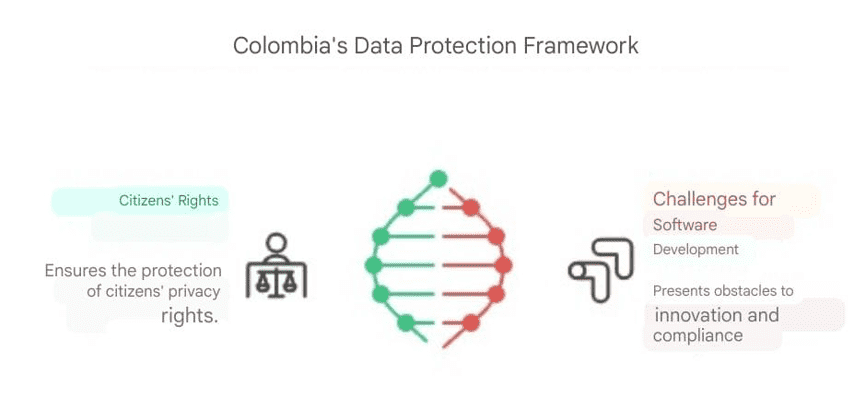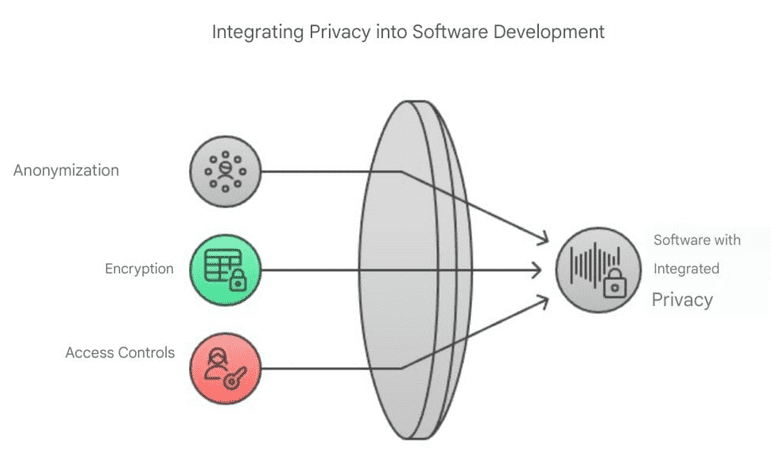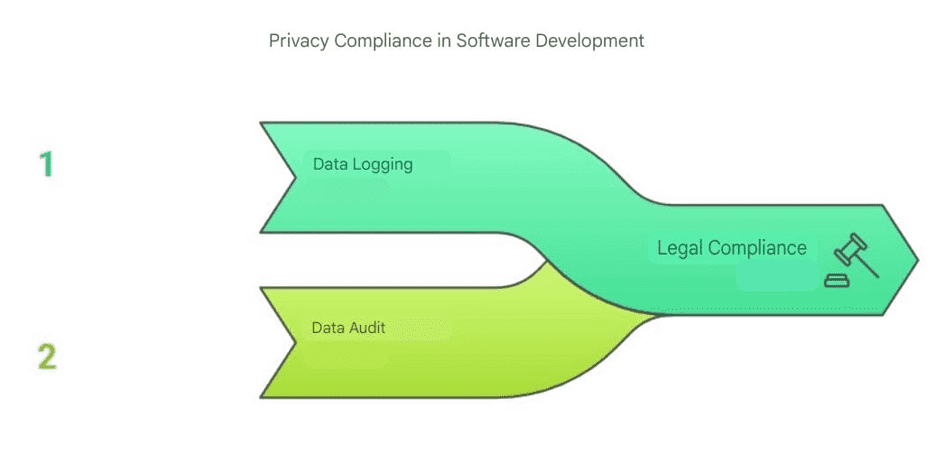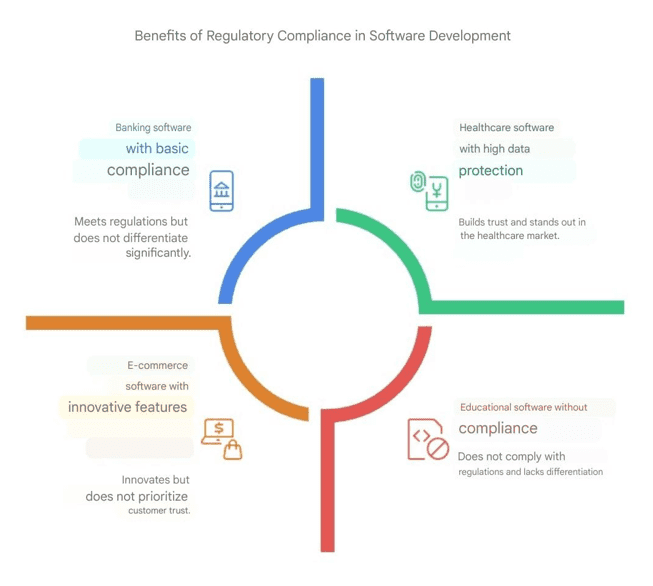Data Regulations in Colombia and Their Impact on Software Development
In an era where data has become one of the most valuable assets for companies, the regulations governing its use, storage, and processing are more relevant than ever. In Colombia, the legal framework for personal data protection not only aims to safeguard citizens’ rights but also presents important challenges and opportunities for the software development sector.
What is the current legal framework?
The main regulatory reference in Colombia is Law 1581 of 2012, known as the Personal Data Protection Law, complemented by Decree 1377 of 2013 and other guidelines issued by the Superintendence of Industry and Commerce (SIC). This regulation establishes the principles, rights, and obligations related to the processing of personal data by public and private organizations.
The law requires, among other aspects:
• The data subject’s explicit authorization for the use of their data.
• Clear purposes for the collection and use of the information.
• Secure mechanisms for storage and processing.
• Protocols to respond to requests, complaints, or claims regarding data usage.
Direct implications for software development
For companies that design, develop, or implement digital solutions, these regulations affect every stage of the software life cycle:
1. Privacy by Design
From the analysis and architecture stage, it is essential to include data protection mechanisms such as anonymization, encryption, or access controls. Software must incorporate privacy as a core feature, not as an afterthought.
2. Database and storage management
Platforms must handle personal data under strict security standards. This involves considering cloud providers that comply with Colombian law or international agreements (such as GDPR if data from European citizens is involved).
3. Auditing and traceability
Applications must allow for the logging and auditing of data use, facilitating legal compliance in the event of inspections or user claims.
4. Interfaces and user experience
Software must provide clear mechanisms for consent management and allow users to access, correct, or delete their data easily, in compliance with habeas data rights.
Opportunities for the sector
Although regulations may seem restrictive, they also represent an opportunity to stand out in the market. Software that complies with data protection standards builds trust and becomes an added value for clients, especially in sensitive sectors such as healthcare, banking, education, or e-commerce.
Moreover, regulatory compliance opens doors to new markets and partnerships, as many companies —even international ones— require their tech partners to have strong data protection practices.
Conclusion
Complying with data protection regulations in Colombia is not just a legal obligation but an essential component of quality software development. Adopting a culture of privacy from the product’s conception not only reduces legal risks but also enhances competitiveness, strengthens user relationships, and positions companies as responsible leaders in the digital age.
In an increasingly regulated and demanding environment, those who integrate these principles into their development processes will not only comply with the law but also shape the future of software with responsibility and vision.
Want to know more?







